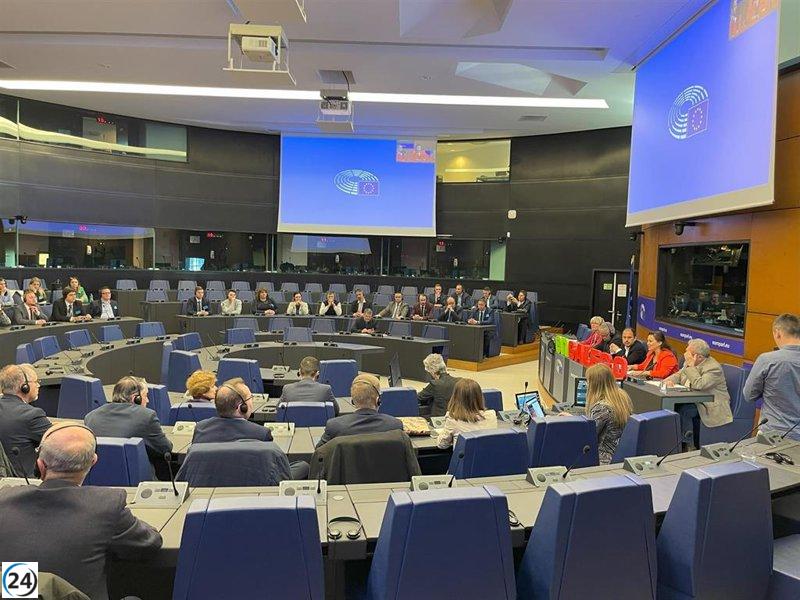La Ley Audiovisual no garantiza la pluralidad lingüística dice A Mesa y productores ante el Parlamento europeo

Representatives from the Mesa pola Normalización Lingüística, the Asociación Galega de Produtoras Independientes (Agapi) and the Grupo de Estudos Audiovisuais de la Universidade de Santiago de Compostela (USC) have accused the new Audiovisual Law of endangering the survival of the Galician language and the sector in Galicia. They called for equal treatment for all minority languages at a hearing of the European Parliament's Minority Language Intergroup, hosted by the MEP for BNG, Ana Miranda.
A Mesa pola Normalización Lingüística's president, Marcos Maceira, said it was "impossible" to normalise and expand a language without its inclusion in every space and with a genuine possibility for usage. He referred to the new Audiovisual Law and claimed it excluded Galician from various institutional and public spaces, further preventing its speakers using their language.
According to Maceira, excluding Galician from the audiovisual sector is the equivalent of excluding it from private televisions, and families' homes, leaving limited opportunities for its continued use. Maceira also criticised the government for prohibiting the use of the Galician language in subjects such as maths, physics and chemistry, as well as technology, calling it a "negative sign".
Xosé Lois Ledo of the Asociación Galega de Produtoras Independientes criticised the government for failing to consider feedback from independent production companies regarding the Audiovisual Law. Ledo claimed that the definition of an independent producer would subtly enable service providers to produce for competing channels. Ledo declared that the new definition would go against the concept of independent productions, which have proved successful in diversifying the cultural and linguistic landscape of the country.
Finally, María Soliña Barreiro of the Grupo de Estudos Audiovisuais de la USC argued that the law did not protect Galician in the audiovisual sector. She called for greater political will and increased funding to ensure the sustainable development of audiovisual productions in Galicia. Barreiro called on the European Parliament to consider subtitling every European language at the European Film Awards, not just the official 24 languages.
Categoría:
Newsletter
Entérate de las últimas noticias cómodamente desde tu mail.